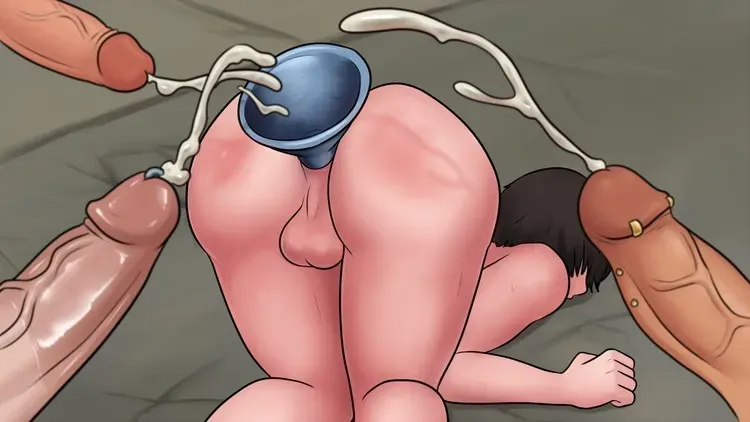
Friends in Need
Play Friends in Need
Friends in Need review
Exploring the immersive storytelling and gameplay of Friends in Need
Friends in Need is a captivating interactive game that invites players into a complex narrative filled with moral choices and character-driven storytelling. This article explores the unique features of Friends in Need, highlighting its immersive gameplay, character dynamics, and how player decisions shape the story. Whether you’re new to the game or looking to deepen your understanding, this guide offers practical insights and personal reflections on navigating the game’s intricate paths.
Understanding the Core Gameplay and Storyline of Friends in Need
What Makes Friends in Need Stand Out? 🤔
Let’s be honest, the interactive narrative game space is crowded. You’ve probably played titles where your choices feel more like decorative flags on a predetermined path than actual forks in the road. I know I have, and I always walk away feeling a bit cheated. That’s precisely where the Friends in Need game completely flips the script. 🎮
What grabbed me from the first moment wasn’t just a slick interface or high-end graphics; it was the raw, emotional weight of the Friends in Need storyline. This isn’t a power fantasy or a save-the-world epic. It’s a painfully human story about a group of friends navigating a personal crisis. The game’s genius lies in its focus on the quiet, devastating moments and the complex web of relationships. It feels less like playing a game and more like living inside a poignant, character-driven novel where you hold the pen.
The core of this experience is the profound player choices impact. I remember one early scene where you have to decide how to comfort a friend whose world is falling apart. Do you offer a pragmatic solution, a shoulder to cry on, or a distracting night out? I chose the distraction, thinking I was being helpful. The game didn’t just acknowledge my choice with a line of dialogue; it fundamentally altered that character’s trajectory for the next several hours, making them more reckless and avoidant. I felt that. It was my fault. That level of consequence is what sets this moral choices game in a league of its own.
Key Characters and Their Roles 👥
The heart and soul of any great story are its characters, and the Friends in Need characters are some of the most authentically written I’ve ever encountered in a game. They are flawed, multifaceted, and feel like people you might actually know. You don’t just observe them; you become a part of their circle, and your relationships with them are the primary driver of the narrative.
Let me tell you about Alex. Alex is the central figure around whom the crisis revolves, and your history with them is a core part of the story. Your dialogue options let you define this past—were you childhood besties, or is your friendship a more recent, fragile thing? This baseline affects every single interaction. Then there’s Sam, the pragmatic one who tries to hold everything together, often at their own expense. I found myself constantly torn between supporting Sam’s efforts and telling them to just let go and feel their own pain for once.
To help you keep track of this incredible cast, here’s a breakdown of the key players you’ll be getting to know:
| Character | Brief Description | Narrative Role |
|---|---|---|
| Alex | The heart of the crisis; vulnerable and searching for support. | The catalyst whose situation forces the group to confront their own issues and dynamics. |
| Sam | The group’s organizer; reliable but prone to burnout. | Represents the cost of self-sacrifice and the pressure to be the “strong one.” |
| Riley | The empathetic listener; intuitive but often internalizes others’ pain. | Acts as the group’s emotional barometer and moral compass. |
| Jordan | The realist with a sharp wit; uses humor as a defense mechanism. | Provides comic relief while challenging groupthink and forcing hard truths. |
Getting to know these Friends in Need characters isn’t just background lore; it’s essential gameplay. Understanding Jordan’s sarcastic armor, for instance, helps you decode when they’re being genuine versus when they’re deflecting. Your ability to read the room and respond appropriately is your most powerful tool. 🛠️
How Player Choices Influence the Narrative 🧭
This is where the Friends in Need game truly becomes your story. The gameplay mechanics Friends in Need are elegantly designed to make every decision feel significant, moving far beyond a simple “good vs. evil” slider. The game tracks your relationships, your personal emotional state, and even subtle character traits like your tendency to be confrontational or avoidant.
The player choices impact is both immediate and long-term. A seemingly minor decision, like choosing to answer your phone during a crucial moment, can have ripple effects chapters later. I learned this the hard way. In one playthrough, I consistently prioritized Alex’s needs over everyone else’s, thinking I was being a good friend. By the end, Alex was doing better, but I had completely alienated Sam and Jordan, who felt used and neglected. The game ended not with a triumphant celebration, but with a quiet, heartbreaking conversation where two of my closest friends told me they needed space. I had to put the controller down and just sit with that for a while. 😥
Pro Tip: Don’t try to “game” the system. Play authentically. The most rewarding endings often come from embracing the messy, imperfect nature of friendship, not from trying to achieve a “perfect” outcome.
The branching narrative is astonishingly complex. We’re not just talking about different endings; we’re talking about different middles. Key story beats, character revelations, and even locations you visit can be completely locked or unlocked based on your actions. Here are a few ways your choices directly shape the experience:
- Relationship Thresholds: Your affinity with each character is a hidden score. Falling below a certain point with a key character can lock you out of their personal subplot and the support they offer later.
- Emotional State: The game tracks your protagonist’s stress and morale. Letting your own character become too overwhelmed can lead to new, more desperate dialogue options and even affect your ability to think clearly during timed decisions.
- The Ripple Effect: A choice you make in Chapter 2 might not pay off until Chapter 5. A piece of advice you give to one friend might be passed on to another, completely changing the context of a future confrontation.
This intricate design makes the Friends in Need storyline incredibly replayable. My second playthrough felt like a different story because I focused on balancing the group’s needs, leading to a much more bittersweet but ultimately united conclusion. It’s a powerful reminder that in life, and in this brilliant interactive narrative game, there are rarely perfect answers—only choices, and the responsibility we bear for them. ✨
Friends in Need offers a richly layered gaming experience where every decision carries weight, shaping the story in meaningful ways. Its compelling characters and branching narrative paths invite players to explore diverse outcomes and moral dilemmas. Whether you approach it as a casual player or a narrative enthusiast, Friends in Need provides an engaging journey worth experiencing. Dive in and discover how your choices define your story.





























